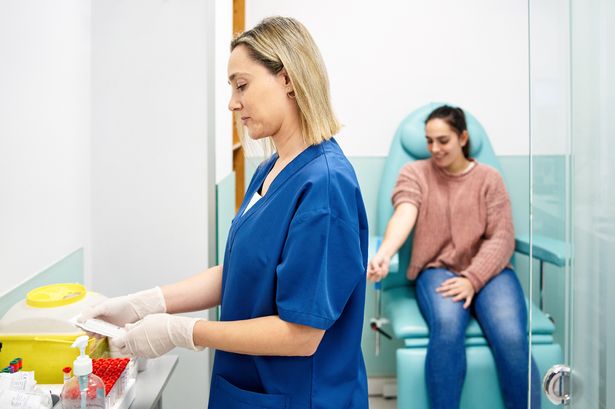Every year, sexually transmitted infections (STIs) peak during the late summer and early autumn, according to the National Library of Medicine.
There are hundreds of STIs out there but many of them present no symptoms, which could lead to people living with them for a long time.
Unfortunately, many can leave long lasting and dangerous effects if left untreated.
Read more:How to check for skin cancer signs and symptoms as Coleen Nolan reveals diagnosis
In fact, some of the most common STIs can be symptomless.
Here’s everything you need to know and which ones to look out for.
Chlamydia
Chlamydia is one of the most common sexually transmitted infections (STIs) in the UK and Ireland.
It's passed on through unprotected sex (sex without a condom) and is particularly common in sexually active teenagers and young adults.
Most people with chlamydia do not notice any symptoms and do not know they have it, according to the NHS.
If you do develop symptoms, you may experience:
pain when peeing
unusual discharge from the vagina, penis or bottom
in women, pain in the tummy, bleeding after sex and bleeding between periods
in men, pain and swelling in the testicles
Although chlamydia does not usually cause any symptoms and can normally be treated with a short course of antibiotics, it can be serious if it's not treated early on.
If left untreated, the infection can spread to other parts of your body and lead to long-term health problems, especially in women.
In women, untreated chlamydia can cause pelvic inflammatory disease (PID), ectopic pregnancy and infertility.
Gonorrhoea
Gonorrhoea is a sexually transmitted infection caused by bacteria called Neisseria gonorrhoeae or gonococcus.
The bacteria that cause gonorrhoea are mainly found in discharge from the penis and in vaginal fluid.
Gonorrhoea is easily passed between people through unprotected vaginal, oral or anal sex.
The bacteria can infect the entrance to the womb (cervix), the tube that passes urine out of the body (urethra), the rectum and, less commonly, the throat or eyes. Typical symptoms of gonorrhoea include a thick green or yellow discharge from the vagina or penis, pain when peeing and, in women, bleeding between periods.
But around 1 in 10 infected men and almost half of infected women do not experience any symptoms.
The infection can also be passed from a pregnant woman to her baby. If you're pregnant and may have gonorrhoea, it's important to get tested and treated before your baby is born.
Without treatment, gonorrhoea can cause permanent blindness in a newborn baby.
Trichomoniasis
Trichomoniasis is an STI caused by a parasite called Trichomonas vaginalis (TV).
Symptoms of trichomoniasis usually develop within a month of infection.
But up to half of all people will not develop any symptoms (though they can still pass the infection on to others).
Trichomoniasis in women can cause:
abnormal vaginal discharge that may be thick, thin or frothy and yellow-green in colour
producing more discharge than normal, which may also have an unpleasant fishy smell
soreness, swelling and itching around the vagina – sometimes the inner thighs also become itchy
pain or discomfort when passing urine or having sex
Trichomoniasis in men can cause:
pain when peeing or during ejaculation
needing to pee more frequently than usual
thin, white discharge from the penis
soreness, swelling and redness around the head of the penis or foreskin
Complications of trichomoniasis are rare, although some women with the infection may be at an increased risk of further problems.
If you're infected with trichomoniasis while you're pregnant, the infection may cause your baby to be born prematurely or have a low birthweight.
Trichomoniasis is unlikely to go away without treatment, but it can be effectively treated with antibiotics.
Preventing STIs
Doctors agree that regular screenings and protective measures, eg condoms, are vital for sexually active people to avoid contracting STDs, or STIs. Luckily, many of these diseases have either cures or treatments.
For a list of sexual health services in Ireland, click here.
Get the latest RSVP headlines straight to your inbox for free by signing up to our newsletter
Join our new WhatsApp community! Click this LINK to receive your daily dose of RSVP Live content. We also treat our community members to wonderful competitions, promotions, along with great stories. If you don’t like our community, you can check out any time you like. If you’re curious, you can read our Privacy Notice























